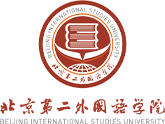
The China-Arab Cultural and Tourism Cooperation Research Center was inaugurated at Beijing International Studies University (BISU) on Aug 1. Attendees included Hifa Abu Ghazaleh, assistant secretary-general and head of social affairs sector of the League of Arab States; Gao Zheng, director of the Department of International Exchanges and Cooperation at the Ministry of Culture and Tourism; Chang Yu, secretary of the CPC BISU Committee; and Ji Jinbiao, deputy secretary of the CPC BISU Committee and president of the university.
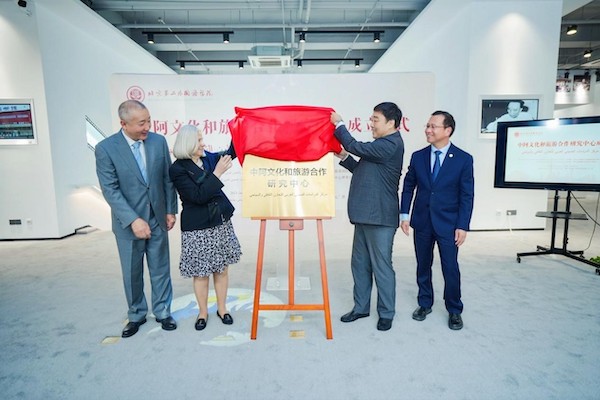
Hifa Abu Ghazaleh (second from left), Gao Zheng (first from left), Chang Yu (second from right), and Ji Jinbiao (first from right) unveil the center on Aug 1.
The establishment of the research center marked a pivotal milestone in fostering cultural interchanges and forging a deeper bond between China and Arab nations. The ceremony was presided by Zheng Chengjun, a member of the Standing Committee of the CPC BISU Committee and vice-president of the university.
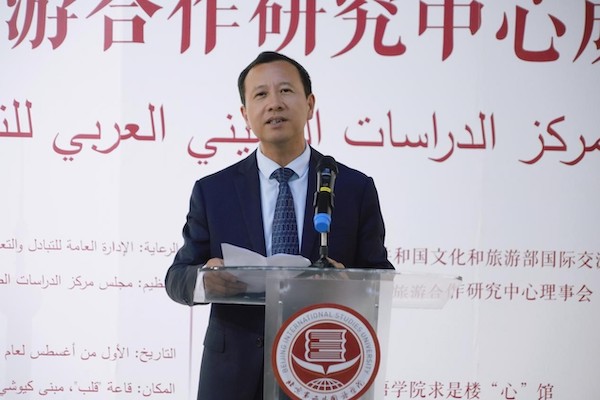
Ji Jinbiao, deputy secretary of the CPC BISU Committee and president of the university, delivers a speech during the ceremony on Aug 1.
During the inauguration, Ji, who also serves as the executive chairman of the center, provided a brief overview of the center's mission. He emphasized that the center, as an outcome of the first China-Arab States Expo, aims to enhance China-Arab cooperation. The center strives to establish itself as a world-class cultural and tourism development research and service platform in the areas of academic exchanges, talent cultivation, training, think tank research, and industrial promotion. This will help deepen the joint construction of the Belt and Road Initiative, strengthening the foundation of China-Arab friendly relations.
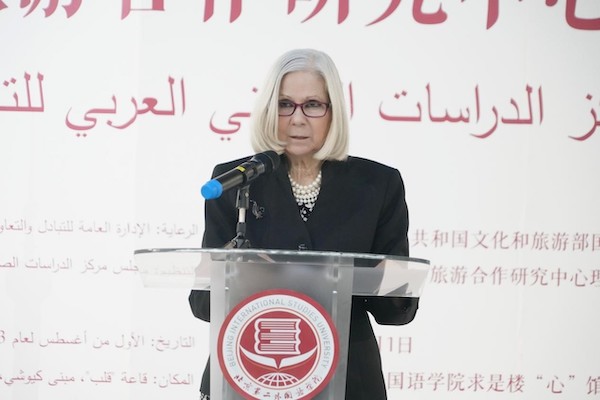
Hifa Abu Ghazaleh, assistant secretary-general and head of social affairs sector of the League of Arab States, delivers a speech during the ceremony on Aug 1.
In her address, Ghazaleh highlighted the importance of unity in the era of globalization. She championed the cause of collaboration capable of confronting challenges collectively. She envisioned the research center as a catalyst for bilateral cooperation, steering the course of political, economic, and social progress. She said she hoped for the profound integration of information technology with cultural and tourism pursuits, a medium to nurture and safeguard cultural heritage, and a conduit to narrow the geographical expanse between the Arab region and China.
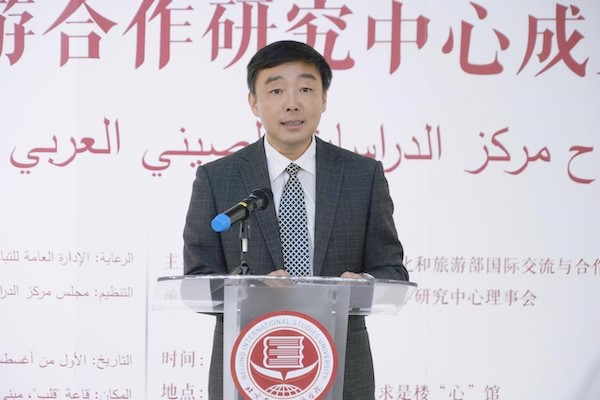
Chang Yu, secretary of the CPC BISU Committee, delivers a speech during the ceremony on Aug 1.
Chang, also the chairman of the center, articulated the importance of cultural and tourism cooperation in fostering deep-rooted China-Arab exchanges and nurturing an authentic people-to-people bond. He extolled the establishment of the center as a momentous stride towards bolstering China-Arab cooperation. He delineated the center's strategic role as a fulcrum for China-Arab cultural exchanges, infusing vitality into the core essence of bilateral relations. He envisions the center's dedication to the triad of "exchange, training, and research".
BISU, as a high-level university jointly established by the Ministry of Culture and Tourism and the Beijing Municipal People's Government, has undertaken numerous significant research and cooperation projects with remarkable results. The establishment of the center is the latest outcome of joint efforts between the national and municipal governments and will become an important platform for institutionalized China-Arab cultural exchanges, representing a key achievement as their relations enter a new historical phase.
The center will engage in China-Arab cultural and tourism exchanges, including business exchanges, cultural and tourism talent cultivation, and youth cultural exchanges through academic exchanges, symposiums and academic lectures.
Also present at the ceremony were officials from the League of Arab States and China's Ministry of Culture and Tourism as well as BISU teachers and students.

Links
